Sana graduated in law from Government Law College, Mumbai, in 2009. Since then she has been an independent legal counsel with practice in civil and criminal litigation matters. Her expertise includes negotiable instruments and personal family law, primarily handling matters pertaining to domestic violence, sexual harassment and divorce. She has practised before the Metropolitan Magistrate Court, Sessions Court, Family Court and Hon’ble Bombay High Court. She also holds a Masters in IPR, from Mumbai University.
In this interview we speak to her about:
- Being Partner at POSH
- Her passion for litigation
- Her interest in IPR
Given that most of our readers are law students, how would you introduce yourself to them?
Firstly, many thanks for thinking me worthy of being a part of this commendable and extremely informative magazine, which I am sure is a great knowledge building tool for all your readers. In brief, I would introduce myself as someone who is hardworking, straightforward, and has a never ending thirst for knowledge.
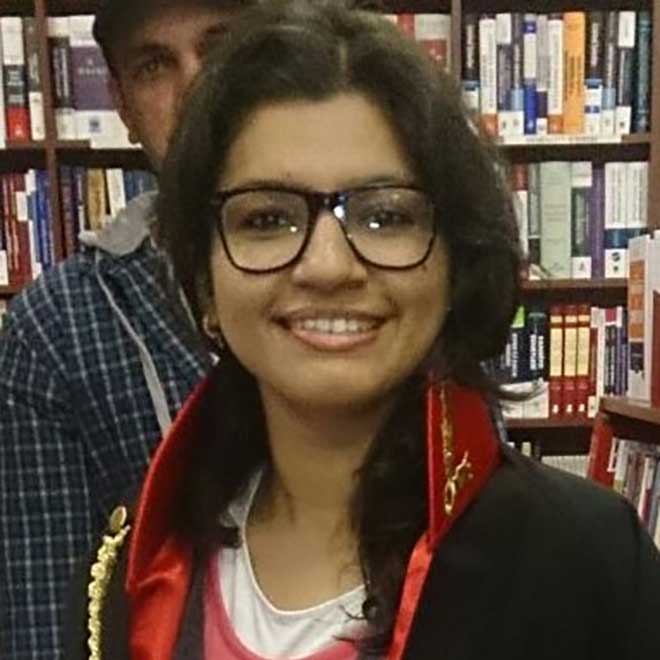
What motivated you to pursue a career in the legal field after obtaining a B. Com degree?
Honestly, it was more of a default option as my father, Advocate Hakim Salim A.R is also an Advocate having more than 30 years of experience in the field. I would say he was the biggest motivating factor for me. Having a commerce degree opened various avenues initially and was almost successful in distracting me from becoming an Advocate; however, destiny had other plans.
Can you share some memorable experiences from you time at law school?
I was involved in debates during graduation, and in law school I was more active in social service. I was exposed to the harsh realities up close from volunteering experience in orphanages to even beach cleaning, which I feel creates empathy in a person, which is something every advocate should possess.
What was your first job after college?
I immediately took the plunge in practising law, and I have a good practice in family matters, domestic violence matters, criminal matters, civil matters and also cheque bouncing matters. All these are extremely varied, which gave me a good idea of both sides of law. Of course, for the exposure and initial push into the profession I have my father to thank for, however, it took a lot of initial setbacks to finally understand, that you will not get to hear always what you want to hear, and also that humility and patience can go a long way in the profession.
What got you interested in IPR?
I had taken IPR in my LLB days as an option in my third year. At that time the priority was to get good marks as I had heard it was quite scoring. However, I subsequently developed a keen interest in the subject, and went on to specialise in it in my Masters, and also stood third in the Mumbai University. As far as this area of law is concerned, there are many things that you can do, like become a patent or trademark agent, or specialise and take up litigation in IPR laws such as copyright, trademarks and patents. IPR laws are crucial in this day and age of globalisation, added with cyber laws which also is a part of curriculum of Masters. All of the aforementioned are a gold mine, professionally, in case you have keen interest.
You have an excellent academic track record. How did you maintain a work life balance in law school?
I feel that its imperative to have your priorities set. While focus, grit, determination, and of course, hard work are important, spending time with friends and/or family, taking up a hobby or maybe even just going for a walk to clear your head, helps you puts thing in perspective. As far as possible, setting timelines for studying and even spending time with friends, I would say, is the key, as both are required in healthy proportions.
You were a Partner at POSH at Work which specializes in combating sexual harassment. What motivated you to take up this cause?
I am a partner at POSH at Work which stands for Prevention of sexual harassment at the workplace. While the law on prevention of sexual harassment came into existence in the year 2013, all the three partners of POSH, which include a corporate lawyer and a clinical psychologist along with me, had been actively involved in the law individually. As fate had it, we three partners chanced and met, and formed an organisation which assists all kinds of organisations with end to end compliance of the law on Sexual Harassment of Women at the Workplace (prevention, prohibition, redressal) Act, 2013. We have also been empanelled by the Ministry of Women and Child Development , Government of India, to conduct training and awareness sessions on POSH Act, 2013, we are the only organisation in Maharashtra and Goa to be empanelled.
The motivating factor was the law itself that is the need of the hour in light of horrendous Nirbhaya gang rape case in Delhi, to various instances pertaining to crime against women, and since am actively involved in practising in laws for women, it was also a natural course for me to take.
Among the root causes of sexual harrasment are the perverse mindsets and behaviour of the people involved in such unscrupulous activity. In order to prevent it, one needs to inculcate respect of each other’s boundaries irrespective of the gender you or the other person belongs to. We also need to raise more awareness among all about the SH Act 2013 (as mandated by the SH law itself) and various crucial amendments (in the year 2013) in the Indian Penal Code etc making punishment for Crimes against Women more stringent. Many people are unaware about whom to complaint to and are apprehensive about getting justice if they complain. Therefore, making them aware and instilling the faith for the law, will also be crucial in prevention of sexual harassment . We at POSH at work through our training and awareness sessions spread awareness among as many people as possible , about the law and its implications, in order to ultimately help prevent sexual harassment.
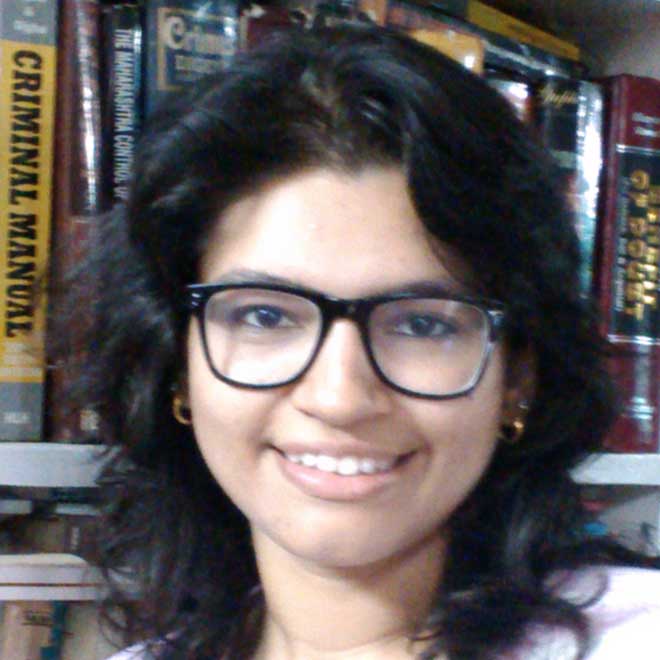
What motivated you to volunteer for the Teach India Program?
Teach India was a wonderful and motivational learning experience. Before the actual volunteering, all of us selected as volunteers had to undergo a seven-day rigorous yet fun training, wherein we learnt unconventional methods for teaching English speaking to adults between the ages of eighteen and 30, in backward areas of Mumbai. My volunteering experience lasted for three months which helped the underprivileged gain a fair chance in the booming private sector, along with giving me sweet memories for life.
Do you think law schools, especially NLUs, produce socially relevant lawyers, given that many choose to take up firm jobs?
To be honest, it is not an attractive profession, and initially there is not much monetary gain. But I believe if you can survive at least three years at a stretch, it prepares you for life, irrespective whether you choose to continue or not. I am not aware of the NLUs, but I think practical knowledge and intention to make a difference in the society, is pertinent and imperative in order to be socially relevant in this field.
What are your core areas of practice? How do you prepare for court hearings? How did you go about building a client base
It would be family matters, domestic violence, criminal, civil and criminal writs, revisions and appeals before the Bombay High Court and cheque dishonour matters. I have a judicial diaspora including the Metropolitan Magistrate courts, Sessions Court, Family Court as well as the High Court.
I prepare prior to and as per the stage at which the case is kept at, by reading the relevant portions of the drafts, along with searching for latest case laws adds weightage to my arguments and submissions before the courts.
As for your question on building a client base; along with the obvious answers which include hard work, grit and confidence, if you do good work and are sincere, the word spreads pretty quickly and forming a client base becomes incidental.
Tell us something about your teaching engagements.
I am currently teaching legal language, Indian penal Code, and also teaching trademarks in the Diploma Course on IPR in a Government Aided Law College for four years now.
My advice to the students would be to attend the lectures. You gain much more than you think you do. Try and keep yourself updated on current affairs, it helps put things into perspective about the law, as the laws are made for the society, and knowing and understanding the society we live in would be critical in understanding the purpose and object of the law.
In your opinion, does law school prepare students for real world challenges?
Well, the answer would be to a great extent, yes, because it teaches you the subject, you get to interact with practising lawyers through internships, lectures etc. However, you are not completely prepared unless you start appearing, preparing drafts and doing the research work yourself.
How can a law student shape his/her profile for litigation while still in law school?
Irrespective of whether you are practising or not, participating in moots have varied benefits as it helps you understand drafting, research about the law as well as the judgments, and adds a practical perspective to your curriculum.
What are your views on the importance of higher education?
Do what you love. If any subject interests you, even a Ph.D will not be an enormous task.
What hurdles have you faced in building your career as it stands today?
If you are passionate about what you wish to build your career in, you should not let any hurdle stop you. There will be hurdles big and small, but a positive attitude and a never say die spirit are not just bookish, but extremely relevant in any field.
What are the qualities one needs to develop to succeed as an advocate?
Positive approach that helps you overcome the complacency which may tend to creep in; humility, and loads of hard work.
How do you maintain a work-life balance?
At times I may have to work seven days a week, but I try and limit that as much, and spend some quality time with my friends and family. Going for long walks along the seaside helps my mind refresh to a great extent.
What advice do you have for our readers who are primarily college students?
My advice would be take all experiences possible. Studying and participating in co-curricular and extra curricular activities broadens your horizon, through which you learn to deal with various things and multitask early on in your college days itself, which is extremely beneficial in whatever you choose to do in life.

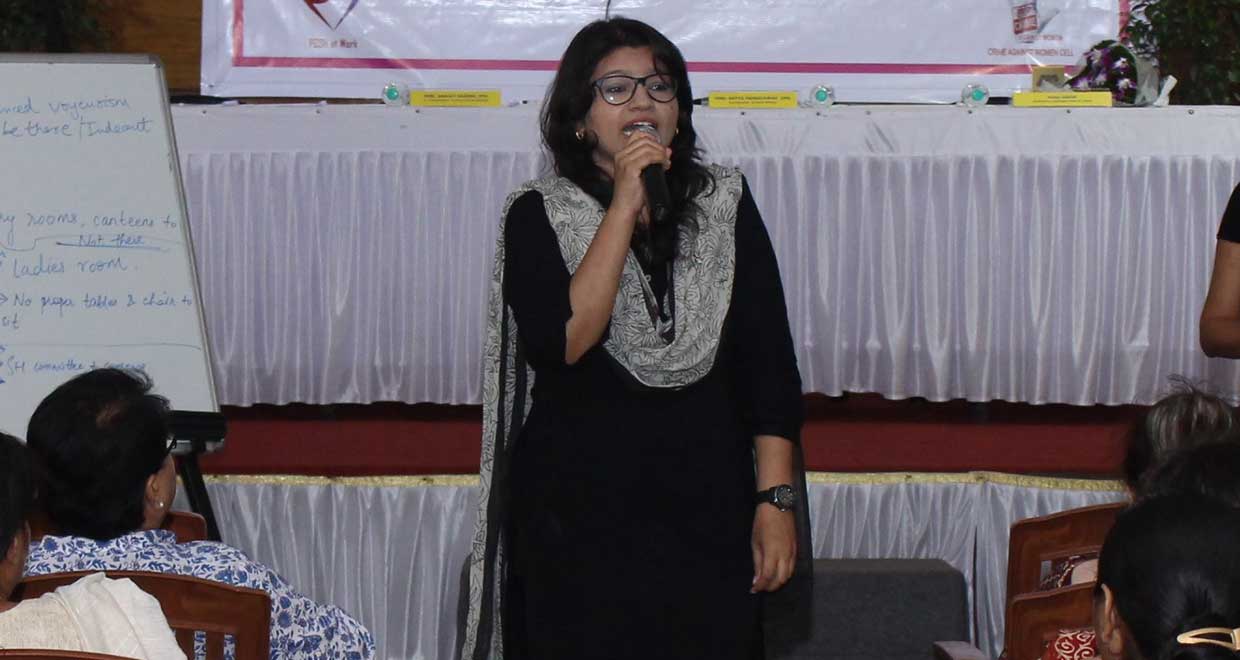



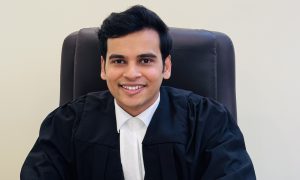

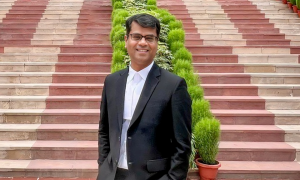



















Pingback: Our Partner Interviewed by Super Lawyer